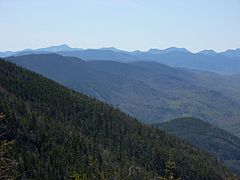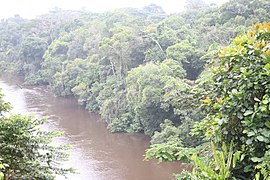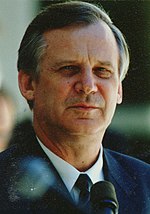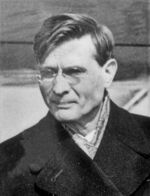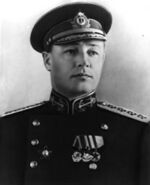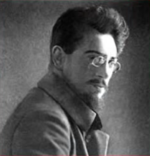Kloistan: Difference between revisions
mNo edit summary |
mNo edit summary |
||
| Line 1: | Line 1: | ||
{{AbandonLore}} | |||
{{Infobox country | {{Infobox country | ||
|conventional_long_name = Kloinarian Federation | |conventional_long_name = Kloinarian Federation | ||
| Line 313: | Line 315: | ||
|Kurul Chairman | |Kurul Chairman | ||
|} | |} | ||
Latest revision as of 12:22, 27 September 2022
This article is considered abandoned lore either because its creator has changed projects or has left the community. Accordingly, it is not only non-canon but it is also eligible for salvage pending approval from an administrator.
|
Kloinarian Federation Kloyinston Federasyon (Kloi) | |
|---|---|
Motto: "Menim milet aspan" (Kloi) "My nation is great" | |
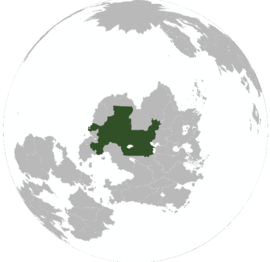 Location of Kloistan (dark green) | |
| Capital and largest city | Gazisishir |
| Official languages Recognised minority languages | Kloi Khasi Suri Damasi Rastek Yasi Ugzak Khur Kandaran |
| Ethnic groups |
|
| Religion |
|
| Demonym(s) | Kloinarian |
| Government | Federal Autocracy |
• Secretary of Kloistan | Yasim Kutaisi |
| Legislature | Federal Congress and Senate |
| Senate | |
| Congress | |
| Formation | |
| 230 | |
| 28 October 1915 | |
| 5 December 1993 | |
| Area | |
• Total | 5,399,710 km2 (2,084,840 sq mi) |
| Population | |
• 2020 estimate | 185,827,913 |
• Density | [convert: invalid number] |
| GDP (nominal) | estimate |
• Total | $939,780,520,882 |
• Per capita | $7,714 |
| Gini | 38.4 medium |
| HDI | medium |
| Currency | Kloinarian Rupee (KLR) |
| Time zone | UTC- |
| Driving side | right |
| Internet TLD | .kl |
Kloistan, officially the Kloinarian Federation, is a country in northern Alshar. It shares land borders with Kandara to the south, Fiannria to the west, Pukhgundi to the southwest, and Canpei, Wonjin to the southeast. It covers an area of 5,399,710 km2 (2,084,840 sq mi). The country has a population of 185 million, the vast majority of which is situated within the country's coastal regions in the east. It is a federation comprising 93 federal subjects, 28 of them which are culturally unique thus granted greater autonomy and representation. The national capital is Gazisishir, the country's largest city and the historical capital for many centuries. Other major cities include Khasavyurt, Gudermes, Tsilvapashir, Shiragav, Khakes, Yashlir, and Derbent.
Ancient Kloi history is fairly unknown, though humans have settled in the region in ~1300 BC forming various tribes and known for being nomadic, living in yurts. The first permanent continuously-inhabitated settlement was Izerbash established by the Izeri tribe in 70 BC, located in the central mountainous region. In 230, the Kloi tribe established their first permanent settlement south of the central mountains, Tsilvapashir which is inhabitated till today. It was the capital city of the newly-founded Kloi Empire. In 310 Klois began to become technologically very advanced and began to dominate the region over all other nations in all aspects. In 340 the Kloi Empire began colonizing its surrounding tribes and soon expanded to more than 20 times it's original size. This massive empire lasted for more than a thousand years. In 1324 the Emperor wanted a new capital city, so Shali (today Gazisishir), south of Tsilvapashir, has been founded. It was a brand new city with the latest architecture, featuring a kremlin. In 1909, the Kloi civil war has started between the Socialists and the monarchy. The Kloi Socialist Party has been led by a philosopher and politician Kass Gazisishir, who won the civil war and took control of the country completly in October 28th 1915. The Emperor and Royal Family have been exiled to live in Kandara. The Union of Kurul Socialist Republics has been founded. The capital city, Shali has been renamed after Kass to Gazisishir in 1927 by his successor after Kass Gazisishir had died. In 5th December 1993, the Union had come to an end and an still autocratic country, known as the Kloinarian Federation, has been founded with a free market economy. This change caused a rapid economic recession from which the country is still recovering until today.
Etymology
History
First era
Second era
Third era
Fourth era
Fifth era
Sixth era
Geography
-
First lovely location
-
Second lovely location
-
Third lovely location
-
Fourth lovely location
-
Fifth lovely location
-
Sixth lovely location
Ecology
Climate and environment
Government and Politics
Executive
Legislative
Federal subdivisions
Politics
Law
Demographics
Ethnicity
Language
Religion



